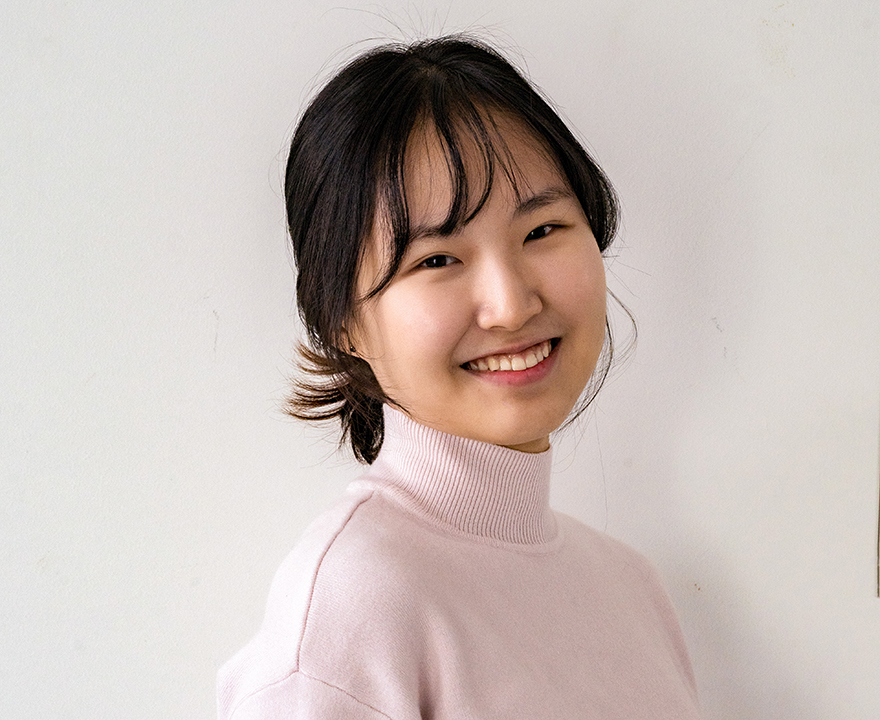Choi named graduate recipient of Justice and Equity Research Paper Award

Choi named graduate recipient of Justice and Equity Research Paper Award
- June 11, 2024
- Honor recognizes the sociology grad student’s work addressing race, racism, equity and justice
Yeryeng Choi, first-year sociology graduate student, is the graduate recipient of this year’s Justice and Equity Research Paper Award. Choi earned her bachelor’s and master’s degree at Seoul National University in South Korea. The award recognizes her paper, “Leveraging and Defying Racial/Ethnic Expectations to Move People: Critical Race Theory Approach to Climate Activist Speeches,” for excellence in addressing race, racism, equity, justice, and other related topics. Below, she shares what inspires her work and her plans to become a professor.
What made you decide to pursue sociology for graduate school, and specifically at UCI? What interests you most about your work?
I’ve been interested in social movements, race, gender, and emotions, and UCI has a great program with research strengths in these areas. I also had a chance to talk with some of the amazing faculty members working in relevant areas during the admission cycle, which led me to choose UCI.
Tell us about your research. What problem will your findings help solve?
Right now, I’m studying climate/environmental movement in California as part of my second-year project and am hoping to study how race interplays with this dynamic in my dissertation project. I hope to enhance our understanding of what keeps movements going in the absence of protests or big events by questioning how activists cope with burnouts at both the personal and organizational level. For my dissertation project on environmental justice, I will be asking how different race and class identities shape community efforts to redress environmental racism.
Where can your work be found if someone wanted to learn more about your research
I have a couple of published articles on South Korean feminist movements, including the 2017 Toxic Sanitary Pad Incident and subsequent Menstrual rights movement and the De-Corset movement that centered around beauty boycotts. These were published in the Journal of Human Rights Studies and the Journal of Korean Women’s Studies, respectively.
I also have a paper under review at Symbolic Interactions entitled, “The Importance of Backstage Performance to Save Face Against Front Stage Mistakes.” This is based on a 6-month ethnography of a South Korean Percussion Band, a side project I did during my master’s program.
Tell us about your student and campus accomplishments and activities, as well as funding that’s supporting your work.
In addition to the Justice and Equity Research Paper Award, I’m currently serving as a cohort representative at the Department of Sociology at UCI and volunteering as a campaign coordinator at CALPIRG (California Public Interest Research Group) while doing an ethnography on environmental activists.
I’m on a first-year Ph.D. student fellowship funded by the School of Social Sciences. I had also been funded by KFAS (Korea Foundation for Advanced Studies) and Seoul National University Human Rights Center shortly before joining UCI.
Who have been your faculty mentors while here, and what impact have they had on your graduate career?
My advisor is Prof. Francesca Polletta. Her works on how emotions mobilize movements and how imagined ties motivate people to act inspired me during my master’s before joining UCI. I’ve been getting great advice on my second-year project, especially with interviews. I have also been mentored by Prof. David Meyer, Prof. Ann Hironaka, Prof. Nina Bandelj, and Prof. Kelley Fong and really appreciate the great support I’m getting here at the Department of Sociology at UCI.
When do plan to complete your Ph.D.? What are your plans thereafter? How has UCI prepared you well for this role?
Since this is my first year at UCI, I will have completed my six-year journey at UCI by the Spring of 2029. I hope to have landed on a tenure-track faculty position by then.
Any unique life experiences that have guided your educational journey? Give us some background.
I had a chance to join the South Korean Candlelight Movement in 2016-17 by which the South Korean President had been impeached. I was mesmerized by the power and collective zeal of the social movement. Since then, I’ve participated in numerous social movements either as a participant or an organizer, developed a scholarly interest in such volatile yet powerful dynamics, and decided to study them.
Any other tidbits you’d like to share?
I’ve been witnessing how movements impact each other with the recent anti-war movement and its repression across UC campuses. Because I’m studying UC-wide student organization for my project, I’ve noticed that the student body engaging with environmental movements is also adversely affected by the police conflicts on campus. I hope to contribute to the understanding of how burnout and stress impact activism with a broader scope.
-----
Would you like to get more involved with the social sciences? Email us at communications@socsci.uci.edu to connect.
Share on:


connect with us: